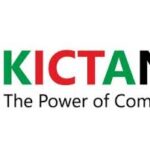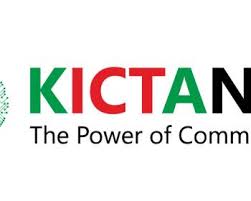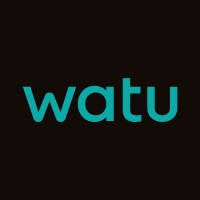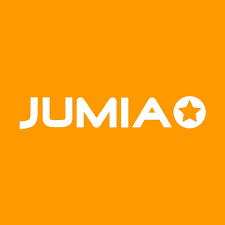
About KICTANet. The Kenya ICT Action Network (KICTANet) is a multistakeholder think tank for people and institutions interested in ICT policy and regulation. The network acts as a catalyst for reform in the ICT sector and is guided by four pillars: policy advocacy, stakeholder engagement, capacity building, and research. As such, the network provides mechanisms and a framework for continuing cooperation and collaboration in ICT matters.
Finance Officer
The Role.
- Ensure the implementation and maintenance of financial controls and procedures in compliance with KICTANet policies, and statutory and donor requirements.
- Prepare payments, requisitions, budgets and forecasts, general ledgers, donor and management financial reports, and other relevant documents.
- Review payment requests and coordinate the procurement of goods and services.
- Ensure the accuracy, integrity, and completeness of financial information for management and donors in a timely manner.
- Prepare monthly bank reconciliations, maintain asset registers, etc.
- Monitor monthly spending against the budget and report on income and expenditure.
- Ensure compliance with statutory obligations including timely filing and submissions.
- Liaison and coordination with payment partners, banks, and other external partners.
- Recommend periodic updates of the KICTANet’s Financial manual in line with best practices.
- Report to the Admin lead and work with admin and program teams to ensure finance operations are implemented in a well-coordinated and timely manner.
- Coordinate the conduct of internal and external audits.
- Perform any other role as may be agreed upon or assigned from time to time.
Qualifications.
- Undergraduate degree in Accounting, Commerce, or Finance, or a related degree from a reputable university.
- Professional accounting qualifications such as CPA (K) or its equivalents.
- 5 years experience as an accountant within the nonprofit sector.
- Experience in grant administration of donor-funded programs.
- Knowledge of accounting computer applications and enterprise resource planning systems.
- Leadership and management skills.
- Good interpersonal and communication skills.
- Strong ethical grounding and integrity.
Monitoring and Evaluation Officer.
The Role.
- Lead the development and implementation of a comprehensive Monitoring Evaluation Reporting and Learning framework to enable the KICTANet to effectively implement activities, measure results and the impact of its work.
- Develop and integrate MERL plans including baseline, target and indicators and all stages from data collection to analysis, reporting and use towards accountability, management, and learning purposes.
- Review monitoring data in line with the projects and overall MERL framework, core programme areas, core approaches, global products and donor requirements.
- Provide technical inputs, jointly with the teams to enhance monitoring and evaluation reporting and learning within the organisation.
- Coordinate and support project teams in the implementation of MERL activities within the organisation including gathering evidence of change, reporting and learning to adapt, improve and advocate for change.
- Prepare and deliver capacity building for project staff, stakeholders and project partners on MERL data collection, analysis, reporting and use.
- Lead and contribute to impact assessment using qualitative and quantitative methods and other mixed methods.
- Ensure the integrity and quality of data in support of the organisation activities including through data verification procedures, including routine data quality audits.
- Develop data collection tools including questionnaires, surveys etc.
- Prepare reports on MERL findings and presentations based on MERL data as required.
- Excellent ability to explore new ideas, innovation and opportunities for impact.
- Undertake any other relevant duties requested by the Project Manager.
Qualifications.
- Subject matter expert on monitoring and evaluation.
- Good communications skills, both oral and written.
- Proven interest in project management, performance measurement, and working on M&E in donor-funded projects and development programmes.
- Highly motivated, self driven, team player and able to work with little supervision.
- Experience in the human rights sector is a plus.
Academic qualifications.
- Undergraduate Degree in social sciences, statistics, economics, public policy, monitoring and evaluation or related fields.
- Experience in monitoring, evaluation reporting and learning, project management, statistical analysis, data management and use of statistical software packages.
- Working knowledge of donor reporting systems and requirements.
- Strong background in qualitative and quantitative research methodologies, data collection, analysis and production of various information products.
- 3 years experience in a nonprofit organisation
- Understanding of digital rights issues
Programme Officer
The Role.
- Coordinate the implementation of projects and ensure timelines are observed.
- Assist in project design, planning, implementation and evaluation
- Manage, prepare and archive relevant program documentation, together with the program lead.
- Support the implementation of plans, strategies and the day-to-day performance of program events and activities.
- Coordinate training, meetings, research and advocacy work of the network.
- Updating of the network contacts database, media, publications etc.
- Report to, and work with the program lead to ensure programs are implemented in a coordinated and timely manner.
- Prepare and submit to the Programme lead, quarterly reports on the performance and execution of these functions.
- Perform any other role as may be agreed or assigned from time to time.
Qualifications
- Undergraduate degree in a relevant field such as Development Studies, International Relations, Public Policy, or a related discipline from a reputable university.
- Strong project management skills with experience in project design, planning, implementation and evaluation.
- Excellent communication and interpersonal skills to coordinate training, meetings, research and advocacy work.
- Subject matter expert on human rights and social change.
- Proficient in database management to maintain and update the network contacts database, media, publications etc.
- Ability to work collaboratively with the program lead to ensure timely and coordinated implementation of programs.
- Strong writing and reporting skills to prepare quarterly reports on program performance and other relevant documentation.
- Highly motivated, self driven, team player and able to work with little supervision.
- Experience in the human rights sector and familiarity with policy and regulation would be an advantage given KICTANet’s focus on ICT policy advocacy.
- Relevant experience in the nonprofit sector, especially in program coordination and implementation roles
The ideal candidate should be a team player with strong organizational and multitasking abilities to handle the diverse responsibilities of the role. Familiarity with donor reporting requirements and grant management would also be beneficial.
Call for Research Consultants on Sexual abuse of women
Terms of Reference for Consultants: Research on the Lived Experiences of Survivors of Image-based Sexual Abuse, Tech-facilitated Sex Trafficking, and Sexual Extortion and Coercion
KICTANet, in partnership with Equality Now, is conducting research on the lived experiences of survivors of image-based sexual abuse, tech-facilitated sex trafficking, and sexual extortion and coercion. The research will provide details of the experiences of diverse women and girls affected by these forms of technology-facilitated sexual exploitation abuse (TFSEA) and an analysis of the opportunities for improvement or change, challenges, and/or hurdles they face when seeking legal remedies.
This initiative will assist in understanding how TFSEA is manifesting in the Kenyan context, including the implementation of laws through the criminal justice system – by the law enforcement institutions (National Police Service as well as the Office of the Director of Public Prosecutions) and judicial officers, and the opportunities, challenges, and gaps in accessing legal remedies. The overall report will provide an analysis of the key opportunities, gaps, and challenges, informed by the experiences of women and girls affected by TFSEA in Kenya. It will also make recommendations for law and policy reform. The report will subsequently be disseminated to stakeholders working to end TFSEA including government departments, WROs, other CSOs, and tech companies.
KICTANet is looking for a lead researcher and two assistant researchers to conduct research on the lived experiences of survivors of image-based sexual abuse, tech-facilitated sex trafficking, and sexual extortion and coercion.
Objectives of the Consultancy
The primary objective of this consultancy is to conduct research on the lived experiences of diverse women and girls who have survived image-based sexual abuse, tech-facilitated sex trafficking, and sexual extortion and coercion to help increase understanding of changes that are required under national and international laws and standards to end these forms of TFSEA.
Scope of Work
The consultant(s) will be responsible for the following tasks:
- Literature Review and Conceptual Framework
- Conduct a comprehensive literature review on existing research, reports, and studies related to image-based sexual abuse, tech-facilitated sex trafficking, and sexual extortion and coercion.
- Develop a conceptual framework that guides the research, incorporating relevant theories and perspectives from gender studies, human rights, and technology studies.
- Research Methodology
- Design and implement a qualitative research methodology that effectively captures the lived experiences of survivors.
- Employ appropriate data collection methods, such as in-depth interviews, focus groups, and participatory observation.
- Ensure ethical considerations are adhered to throughout the research process, including obtaining informed consent, maintaining confidentiality, and providing support services to participants.
- Data Collection and Analysis
- Recruit a diverse sample of women and girls who have experienced image-based sexual abuse, tech-facilitated sex trafficking, and sexual extortion and coercion.
- Conduct interviews and focus groups with participants, exploring their experiences, challenges, and coping mechanisms.
- Analyze the collected data using thematic analysis or other appropriate methods to identify key themes and patterns.
- Psychosocial Support
- Conduct a needs assessment to identify the specific psychosocial support needs of research participants.
- Collaborate with qualified mental health professionals, such as psychologists, counselors, and social workers, who have expertise in working with survivors of trauma such as image-based sexual abuse, tech-facilitated sex trafficking, and sexual extortion and coercion to provide a range of support services, including individual counseling, group therapy, peer support groups, and crisis intervention.
- Key Areas of Investigation
- Explore the various forms of image-based sexual abuse, tech-facilitated sex trafficking, and sexual extortion and coercion experienced by survivors.
- Investigate the impact of these experiences on survivors’ mental health, physical well-being, social relationships, and economic stability.
- Examine the role of technology in perpetuating and facilitating these forms of abuse.
- Identify the challenges and barriers faced by survivors in accessing justice, support services, and protection.
- Analyze the effectiveness of existing national and international laws and standards in addressing these forms of abuse.
- Policy Recommendations
- Develop evidence-based policy recommendations to strengthen national and international laws and standards to prevent and respond to image-based sexual abuse, tech-facilitated sex trafficking, and sexual extortion and coercion.
- Propose recommendations for improving access to justice, support services, and protection for survivors.
- Suggest measures to address the role of technology in perpetuating these forms of abuse.
- Identify areas for collaboration between governments, civil society organizations, and technology companies to address these issues.
- Report Writing
- Compile findings into a comprehensive research report that summarizes the key findings, conclusions, and recommendations.
- Validation Meeting
- Collaborate with project stakeholders, including KICTANet and Equality Now and other relevant organizations, to validate findings and recommendations in a meeting hosted by KICTANet and Equality Now.
Deliverables
The consultant is expected to deliver the following:
- Produce a Report which provides the following:
- A literature review on what is already known about survivor experiences of TFSEA in Kenya. The literature review will outline current common manifestations and forms of TFSEA and intersectional analysis on women and girls who are predominantly exposed to and affected.
- At least 15 to 20 case studies and stories, mapping out survivor experiences of women and girls relating to the range of forms of TFSEA experienced. We expect that in the sample, there is a sizable number of cases of image-based sexual abuse, tech-facilitated sex trafficking, live streaming of sexual exploitation and abuse, and sexual coercion and extortion.
- Analysis of trends that can be seen from the case studies and stories, with a specific focus on any opportunities, challenges, or hurdles survivors face when seeking legal remedies. The analysis could consider opportunities in the law, challenges or hurdles that relate to things such as:
- Reporting trends, for instance, how the reports are made? Or how cases were handled after reporting;
- Effectiveness of investigation after reporting, including collection and storage of evidence;
- Whether their cases were able to be prosecuted without undue delay, justly and impartially;
- Were there any challenges with respect to the Jurisdiction of the Court?
- Did they opt to report the incidence(s) through other bodies, such as quasi-judicial mechanisms (national commissions/ offices established with mandates that can promote access to justice) instead of the formal criminal system?
Methodology:
In drafting the Report, the consultant(s) shall take into account the following:
- Incorporate intersectional feminist analysis. This includes considerations of women with disabilities, women from marginalized communities and the LGBTQI+ community, for instance.
- When referring to legal and official text, use official government, UN, or regional sources (e.g. refer to text of laws and policy documents rather than secondary sources) in the original language and official translation if possible, and explain methodology if not.
- Use reputable secondary sources such as the World Bank (see Women, Business and the Law reports/data), UN reports, and other highly reputable independent or academic institutions.
Timeline
The consultancy is expected to be completed within 3 months from the start date, with specific milestones for data collection, analysis, and report submission.
Qualifications
The ideal consultant(s) should possess the following qualifications:
- Proven experience and knowledge working on and with survivors of tech-facilitated gender based violence.
- Strong understanding of digital safety, legal and policy frameworks surrounding TFSEA
- Excellent analytical and report-writing skills including the ability to effectively communicate complex research findings to diverse audiences.
- Proven commitment to ethical research practices, including obtaining informed consent, maintaining confidentiality, and providing support services to participants.
Application Process
Interested consultants should submit their applications here, by 18 September 2024,
Budget for the Roles:
- Lead Researcher: Kes 450-500K
- Assistant Researcher: Kes 250k-300K







